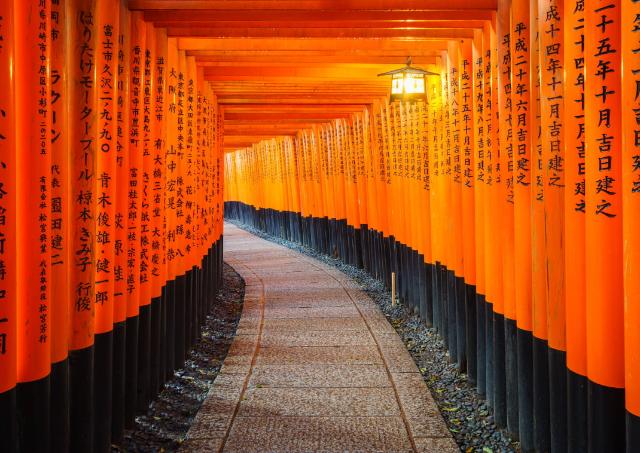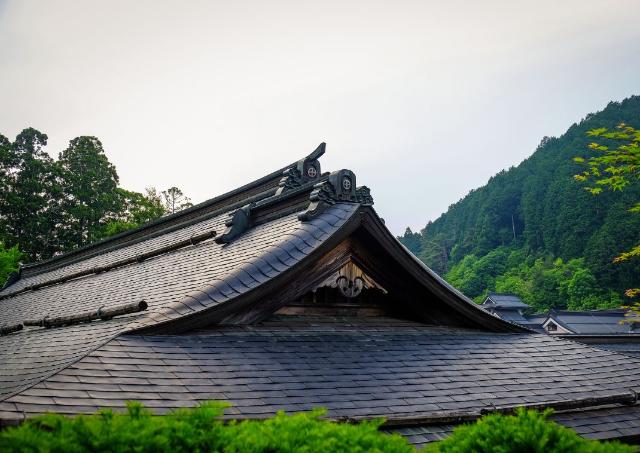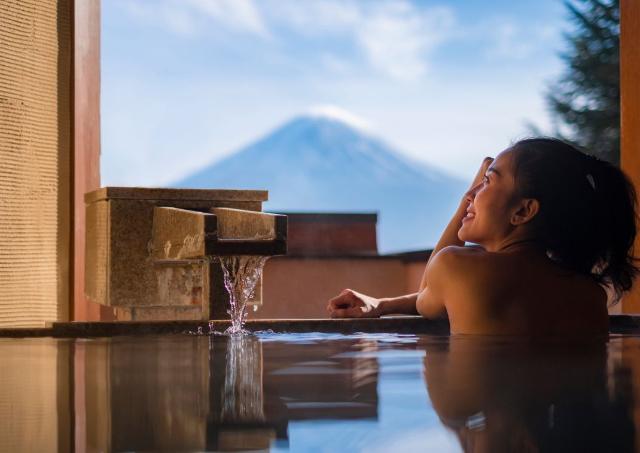Sustainable Style in Tokyo: Shopping Second-Hand Like a Pro
Tokyo is a shopper's paradise, with thousands of shops, big and small, selling just about anything you can imagine. What's more, the Japanese tend to chase trends, so what's new today is old tomorrow. What happens to all of those old things when they are no longer as attractive to their owners? In Japan, where people are discouraged from just throwing things away and recycling them instead, many used items end up in second-hand shops. Electronics, clothing, books, toys, you name it, there is likely a second-hand store in Tokyo selling it.
Key Takeaways
Tokyo is a top spot for high-quality second-hand shopping, from fashion to electronics and collectibles.
Items are often in near-new condition thanks to Japan’s care culture and fast product turnover.
Strict anti-counterfeit laws make it safe to buy pre-loved luxury goods.
Best areas: Shimokitazawa, Koenji, Cat Street, and Ginza.
Look for trusted chains like 2nd Street, Treasure Factory, and RagTag.
Beyond fashion, explore shops for vintage cameras, toys, and home goods in suburbs or flea markets.
Items You Can Buy Second-Hand in Tokyo
While second-hand shops exist for nearly every category of consumer product, the most popular type of second-hand shop is definitely clothing and accessories. Vintage clothes, designer brands, and everyday fashion fill the racks of hundreds of stores throughout Tokyo, although some neighbourhoods have a higher concentration of shops than others, as you will soon find out.
With the cycle of technology growing shorter and shorter, used electronic goods such as cameras, smart phones, and computers also attract a large share of the second-hand market. Next are books and magazines, which take up a lot of space in people's small living spaces and are often one of the first things to go when someone is cleaning their home.
Photo: Todd Fong
Japan is a haven for collectable goods including figurines, gachapon toys, playable card games, and the like. Some areas of Tokyo specialize in second-hand shops selling these kinds of items.
Finally, there are the general used items that you might find in any country around the world: musical instruments, home appliances, dishware, furniture, and everything else you can imagine. You won't find these general shops in the heart of Tokyo, but there are plenty of them as you move toward the suburban areas on the outskirts of the city.
Why Is Second-Hand Shopping So Good in Japan?
As mentioned before, one reason the second-hand market is so good in Tokyo is because of the high rate of churn in new items. It seems like something new is released to consumers every day, replacing something they bought only a few months ago. So many items that are already second-hand in Tokyo have really not been used much at all.
Another reason is that in general, Japanese people tend to take care of their belongings better than people in other countries. Caring for items, both your own and things shared by everyone, is ingrained in Japanese culture. Of course, there are always exceptions, but in general, you'll find many used items that look almost new as you shop in Tokyo's second-hand stores.
For those who enjoy shopping for brand name goods in particular, Japan has very strict laws against the sale and manufacturing of counterfeit goods. Many visitors to Japan are unafraid to buy luxury clothing and handbags here because the sale of counterfeit items is so rare. You'll find many shops featuring only designer clothing or accessories sold at reasonable prices when compared to purchasing similar items brand new.
The Best Areas in Tokyo for Second-Hand Clothing Stores
As most people visiting Tokyo are hoping to buy second-hand clothing, either vintage clothing or designer brands, let's start by identifying the best areas in Tokyo for these kinds of shops.
Shimokitazawa: An Endless Variety of Vintage Clothing Stores
Not long ago, Shimokitazawa (in short: Shimokita) was just an alternative hangout for the Shibuya crowd who were too cool for Shibuya. Just a few stops away from both Shinjuku and Shibuya on the Odakyu and Keio Inokashira lines respectively, Shimokita, as it is best known, is now known for its trendy cafes, live music venues, and, of course, vintage fashion shops. You can't walk 10 steps in any direction without finding one, so vintage lovers can literally spend an entire day or more browsing all of the shops in this neighbourhood. The downside? The large number of tourists coming to Tokyo in recent years has driven up the prices significantly, so finding bargains gets harder by the time.
Koenji: Tokyo’s Rock-and-Roll Capital and Vintage Shopping
Photo: Todd Fong
Compared to Shimokitazawa, Koenji's vibe is edgier, catering to a crowd that prefers punk to hippie. You might find live music in Koenji, but the bands might be shredding metal and sporting spiky mohawks. The vintage shopping here tends more toward that crowd as well, with lots of leather jackets, ripped jeans, and t-shirts from heavy metal bands. That isn't to say you can't find other types of vintage clothing here, but you might have to dig further into the racks. Like Shimokita, the surge in tourism has increased the prices in the shops here accordingly.
Cat Street: Eclectic Second-Hand Clothing at Premium Quality
Cat Street cuts through the neighbourhoods of Harajuku and Omotesando, two shopping areas with distinct personalities. Harajuku caters to a much younger, even teenaged crowd, while Omotesando is upscale to the point of being borderline bougie. It's little wonder that the second-hand shops along this popular shopping street split the difference between the two cultures, with basement level shops selling popular brands and glass and steel boutiques dealing in luxury brand clothing and accessories. Cat Street is prime shopping real estate, so expect no bargains here, just high-quality finds that might be one-of-a-kind treasures to bring home.
Ginza: Surprisingly, Many Second-Hand Shops for Designer Brands
Ginza literally sparkles with the flagship stores of some of the world's most exclusive brands: Louis Vuitton, Hermes, Chanel, and BVLGARI to name a few. But along the side streets of Tokyo's most fashionable district are dozens of second-hand shops specializing in designer clothing and accessories. Some of these shops are so upscale, you'd find it difficult to distinguish them from shops selling new items, except for the sharp discounts in prices. Handbags and wallet shops tend to be the most popular of these types of shops in Ginza.
Famous Shops in Tokyo for Second-Hand Clothing
Now that you know the neighbourhoods that are best for second-hand clothes shopping, it is also good to familiarize yourself with some of the big players in the market. After all, you can find second-hand clothing shops nearly anywhere in Tokyo, so it's a good idea to learn the names of these chain shops so you can recognize them or search for them on Google Maps.
The Big Chains: Treasure Factory, 2nd Street, Mode-Off
The big three second-hand clothing stores are actually off-shoots of thrift stores run by their parent companies. Treasure Factory, also known as TreFac, has larger stores in the suburbs that offer a variety of goods beyond clothing, but most shops in central Tokyo focus mainly on clothes and accessories. 2nd Street also has thrift stores on the outskirts of Tokyo and in other cities, but there are many 2nd Street clothing stores in Tokyo, including two shops in Koenji within a few blocks of each other. Mode-Off is the clothing focused brand of its parent group, Hard-Off which has shops specializing in books, home appliances, toys, and other areas. Mode-Off isn't as big as it used to be, but you'll still find a few shops mainly outside of central Tokyo.
Vintage Focused: Desert Snow, RagTag, JAM
Chains which are focused on vintage fashion tend to have locations in the major shopping districts targeted for the younger crowd - think Harajuku, Shibuya, Shimokita, and Koenji - but you'll also find them in more suburban areas of western Tokyo. Desert Snow has several shops in Shimokitazawa alone, but individual shops spread around other parts of the city. RagTag is a global company with locations in Japan, the largest shop probably in Shibuya's Jinnan district. JAM's best location is near Shibuya's Meiji-Jingumae Station, a big red sign over a flight of stairs leading down into a subterranean cavern full of vintage treasures.
Designer Brands: Komehyo, Vintage Qoo, Kindal Harajuku
Perhaps the most amazing thing about Tokyo's second-hand designer brand shops is how they don't feel like second-hand shops at all. A visitor might just believe they wandered into another high-end fashion store, with impeccable displays and spotless products. Komehyo is one of Japan's more famous chains for used luxury goods. While the staff declined to say they guarantee you won't ever purchase counterfeit goods from them, their sterling reputation and strict evaluation processes make them one of the safest bets for buying second-hand designer products. Their shop in Ginza is the epitome of luxury.
Vintage Qoo is like a museum of vintage brand name accessories from the 1990s onward. With over 2,000 items in stock and a huge selection of Chanel products, it isn't unusual for you to have to wait in a queue to enter the store if you come later in the day. Kindal Harajuku features hundreds of items, from clothing to accessories, with a focus on Japanese designer brands.
Second-Hand Shops for Goods Other Than Clothing
Not everyone is looking for vintage Louis Vuitton or Ralph Lauren; some of us would like to find their favourite Nintendo 64 game or a working film camera.
Games, Toys, and Hobbies
The ubiquitous Book-Off, despite its name, sells not only used books, but also used video games, collectible figurines, collectible cards (such as Pokemon), and plush toys. Best of all, you'll find them all over Tokyo, and all of them will have different items in stock. Book-Off was once heaven for vintage video game collectors, but overseas resellers have picked most of the locations clean.
Mandarake is a chain of stores that sells mainly collectible goods: figurines, models, die-cast metal cars, and the like. Nakano Broadway, just north of Nakano Station (only one stop on the Chuo Line from Shinjuku Station), is a treasure trove for these kinds of goods with multiple Mandarake locations along its long hallways.
Cameras
Used cameras are a big market in Japan, with quick technology turnaround and used equipment kept in good condition. Map Camera in Shinjuku is one of Japan's largest used camera shops with over 20,000 items in stock at any given time. English-speaking staff is on hand to help you, and prices are highly competitive. Fujiya Camera is located next to the previously mentioned Nakano Broadway. Although smaller than Map, Fujiya's staff are impeccably professional, and the quality of their products is high.
If you crave vintage cameras, however, head to Ginza to visit Lemon, Inc. Although Lemon has several smaller shops around Tokyo, the Ginza location has a much larger selection of working vintage cameras, not only from Japan but also around the world.
Household Goods
It's rare, but some visitors to Japan want to bring home sets of dishware or perhaps a sake or tea set with multiple cups. Second-hand stores offer incredible bargains on these types of items, so if you have room in your luggage, head to suburban areas of Tokyo or neighbouring prefectures to find a Hard Off or 2nd Street store.
If you're looking for antique goods, however, a better bet is to visit one of Tokyo's large flea markets and antique fairs that are scheduled regularly, usually on weekends. The Oji Racecourse Flea Market in Shinagawa is Tokyo's largest, with over 300 vendors. It happens nearly every Saturday and Sunday, but it can be cancelled or significantly smaller due to rain. The Oedo Antique Market is held outside the Tokyo International Forum next to Yurakucho Station every first and third Sunday of the month and features a great curated selection of vendors selling antique goods.
It might be worth packing an empty suitcase on your next trip to Tokyo, if only to fill it up with vintage items and collectibles from the huge selection of second-hand shops the city has to offer. Who knows what treasures you might discover in the city that never ceases to surprise.




